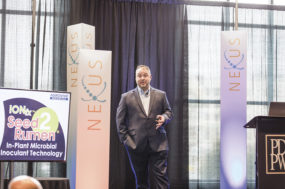How would you feel if your doctor informed you he or she had a brand-new product, that when ingested or injected would relieve your arthritis. Then, to assuage your conscience, he or she assured you that it was never tested on animals.
Or how about if doctors have a new surgical procedure to implant a pacemaker in your father’s heart, but not to worry, no animals were used to perfect the procedure. Or what if you took your dog into a vet clinic for a caesarian section and the newly graduated veterinarian acknowledged that on principle she had refused to operate on live animals in vet school, but she felt certain that it couldn’t be much different than what she saw on the computer.
Where would 21st Century health care for humans and animals be today if uncountable ‘lab’ animals were not sacrificed for the benefit of humans? I would guess the world population would be significantly smaller and life spans significantly shorter. Imagine the state of world health today if we still depended on alternative nostrums and 4,000-year-old Chinese herbs.
The movement to eliminate animal testing in the research of medicine is small. Yet they elicit a misguided sympathetic response in talk show hosts and good-hearted people. But in my opinion, they need to face the fact that sacrifices must be made to achieve the miracles that modern medicine continues to make.
Trying to appeal to their commonsense is frustrating. I can have respect for someone like Ghandi who tried to walk the walk and live a Spartan lifestyle. But when you see protestors who have grown up American and don’t have polio deformities, or measles dementia, or smallpox scars, or head lice, or pin worms, or scurvy but do have good teeth, contact lenses, knee surgery, C-sections or appendectomy scars, I wonder at their disconnect from reality.
Animal testing has come a long way in the last 100 years. We have recognized the value of humane treatment in the animals used. We explore alternative avenues such as computer models to reduce the need for lab animals. America is a civilized nation with the luxury to spend extra money to find ‘gentler’ methods of achieving our humanitarian goals. It is money well spent.
Yet in the end, research on animals remains an essential part of the overwhelming success of the state of modern hearth care in the industrialized nations, and it increases hope for a better Third World still dying from AIDS, Ebola, cholera and the Asian flu.
I cannot imagine what bioresearch will be like 100 years from now, but I’ll bet little white mice will be involved! PD



